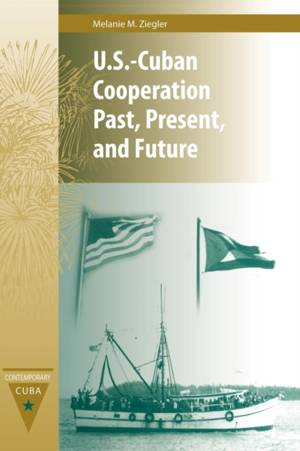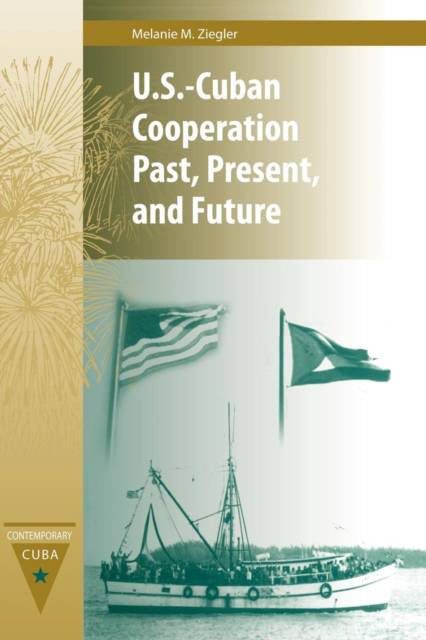
- Afhalen na 1 uur in een winkel met voorraad
- Gratis thuislevering in België vanaf € 30
- Ruim aanbod met 7 miljoen producten
- Afhalen na 1 uur in een winkel met voorraad
- Gratis thuislevering in België vanaf € 30
- Ruim aanbod met 7 miljoen producten
Omschrijving
"I know of no other comprehensive and up-to-date narrative that covers all aspects of the U.S.-Cuba security relationship"--Philip Peters, Vice President of the Lexington Institute
The United States and Cuba actually cooperate on several issues of mutual interest. This intriguing pattern of U.S.-Cuban cooperation emerged during the 1990s. Naked self-interest led the two governments to cooperate in four areas: illegal immigration, drug trafficking, decreasing tensions around Guantánamo Naval Base, and reducing the threat of unintended war. The fact that there has been any cooperation between the United States and Cuba may be surprising since the public rhetoric of animosity has always dominated U.S.-Cuban discourse.
To date, there has been little systematic research on these areas of cooperation, from confidence building measures to how Cuban exile groups have attempted to undermine all levels of cooperation with the United States. Melanie Ziegler examines these issues and offers possible solutions in hopes of discovering the best pathway for avoiding future confrontation and for building normal relations in the twenty-first century. As the Fidel Castro era draws to a close, it is essential to examine and begin looking for new perspectives on U.S.-Cuban cooperation tactics.
Complete with a historical background, this book is a must-read for scholars, students, policy experts, and members of the U.S. military.
Specificaties
Betrokkenen
- Auteur(s):
- Uitgeverij:
Inhoud
- Aantal bladzijden:
- 192
- Taal:
- Engels
- Reeks:
Eigenschappen
- Productcode (EAN):
- 9780813034515
- Verschijningsdatum:
- 30/09/2009
- Uitvoering:
- Paperback
- Formaat:
- Trade paperback (VS)
- Afmetingen:
- 152 mm x 229 mm
- Gewicht:
- 294 g

Alleen bij Standaard Boekhandel
Beoordelingen
We publiceren alleen reviews die voldoen aan de voorwaarden voor reviews. Bekijk onze voorwaarden voor reviews.











